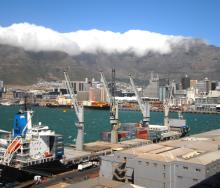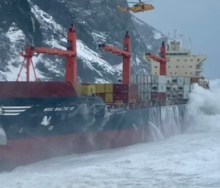Export companies in eight important export economies are optimistic that their earnings will grow this year compared with last year, but politics and protectionism are a significant concern because countries representing 60% of world GDP are going to the polls this year.
Allianz Trade Global Survey 2024, which surveyed more than 3 000 export companies in China, France, Germany, Italy, Poland, Spain, the UK and the US, found that 82% of the respondents expected business turnover generated through exports to increase, compared with 70% last year. Of these, nearly 40% expected increases of more than 5%.
Allianz itself expects global trade to increase by 2.8% in value terms this year, due to the risk of disruptions in global shipping such as the Red Sea crisis, as well as a number of trade wars looming in a super electoral year. This is significantly lower than the long-term average of 5%.
Politics and protectionism were considered the top risk for 73% of companies in the survey. Transport risks and supply chain disruptions were named as the top three concerns for 31% of respondents, and for 28% risks of input shortages were among the top three concerns.
Non-payment risks were a top concern for 17% of respondents. Allianz notes that nearly 55% of companies already have to wait more than 50 days to be paid and nearly 40% of exporters expect non-payment risk to rise in 2024 – expectations that are on a par with 2023.
Although 53% of respondents said they were considering relocating parts of their supply chain due to increasing geopolitical risks, relocating production sites does not rank among the top three out of 10 actions proposed to mitigate supply-chain disruption, except for Spanish and German exporters.
Artificial intelligence was considered the most impactful digital tool for international development for 81% of Chinese importers in the survey, 79% of Polish exporters and 60% for the rest of the countries surveyed.
Sustainability still lags significantly; just under two-thirds of the companies surveyed indicated they would reduce CO₂ emissions by only a meagre 1-5% in 2024, which will not be enough to reach net-zero emissions by 2050.













